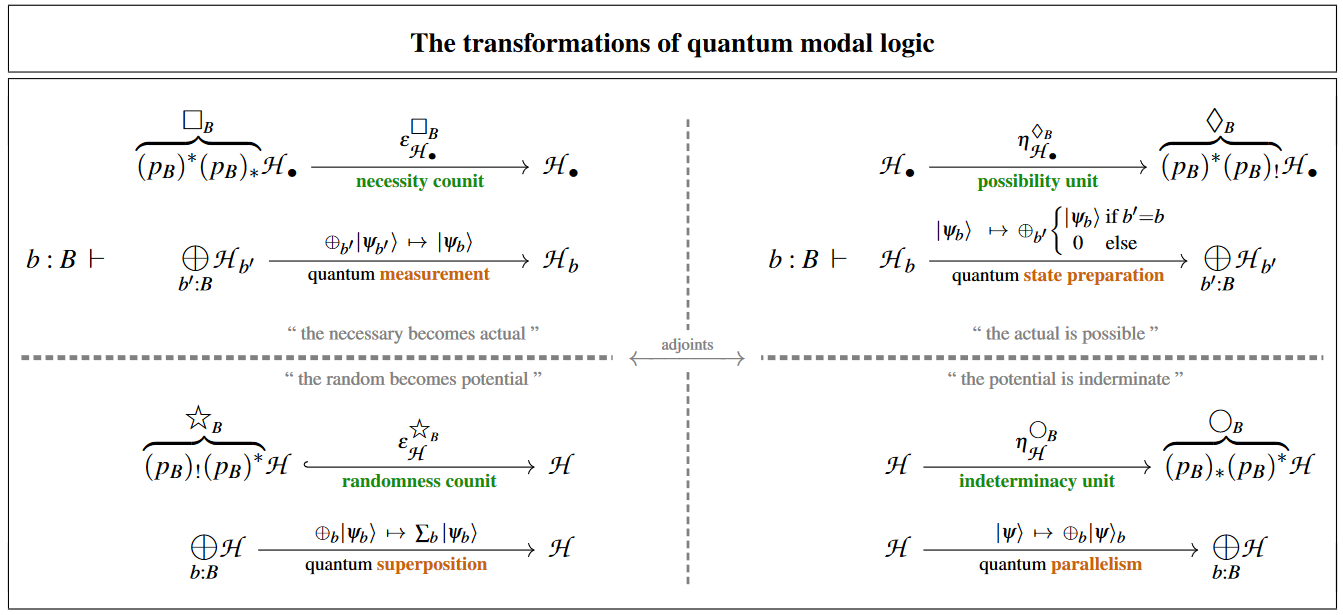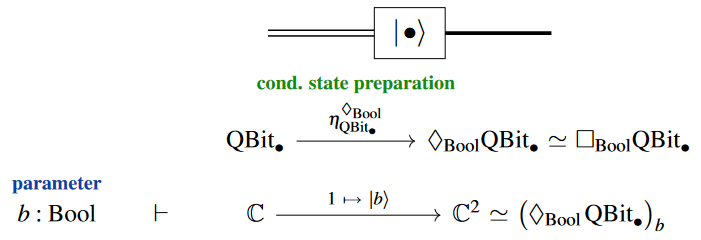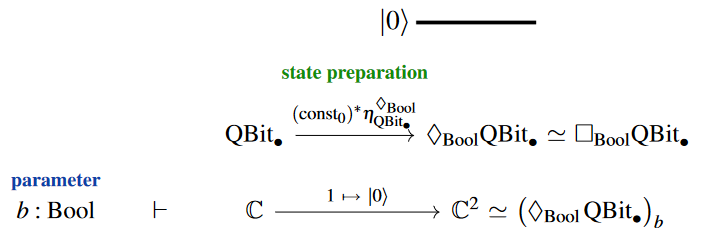nLab quantum state preparation
Context
Quantum systems
-
quantum algorithms:
Contents
Idea
In quantum physics and especially in quantum information theory, by state preparation one refers to a process (either in actual experiments or theoretically as a kind of quantum gate-operation) which, possibly conditioned on a classical parameter , “produces” a predefined quantum state in a given space of quantum states .
For example, for a qbit data type there are, by definition of qbits, two canonical basis states to be prepared, depending on a classical parameter which may be understood as of boolean type (where we set ).
The various fundamental quantum physics phenomena at play here may be identified with four modal-units of quantum modal logic (as discussed at quantum circuits via dependent linear types):

| quantum measurement | quantum state preparation |
| quantum superposition | quantum parallelism |
Explicitly, in the language1 of modal quantum logic on dependent linear types (see at quantum circuits via dependent linear types), the conditional preparation of a qbit-state reads as follows:

and the unconditional state preparation is of this form:

Other states may be prepared by first preparing a qbit-state and then sending it through some quantum gate.
For instance, the Bell state on two qbits may be prepared by first preparing a tensor product of two -states and then sending one through a Hadamard gate and then the resulting two qbits through a CNOT gate:

This is used in many common quantum circuits, such as for instance in the quantum teleportation-protocol.
References
Standard textbook accounts:
- Michael A. Nielsen, Isaac L. Chuang, §7.2 in: Quantum computation and quantum information, Cambridge University Press (2000) [doi:10.1017/CBO9780511976667, pdf, pdf]
-
The above text follows Quantum Certification via Linear Homotopy Types. ↩
Last revised on August 15, 2023 at 08:03:41. See the history of this page for a list of all contributions to it.